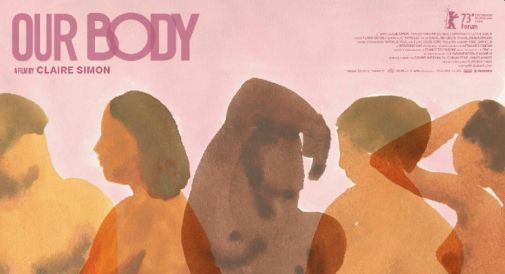Doc Corner: Claire Simon's 'Our Body'
 Saturday, August 12, 2023 at 12:00PM
Saturday, August 12, 2023 at 12:00PM 
It isn’t too common for subjects in observational documentaries to turn to the camera and say, “I love cinema.” It’s even less common for this to happen as the subject in question lays on a medical table ready to be pulled under by anaesthesia and be operated on. None of the many, many subjects filmed by director and cinematographer Claire Simon in her new film Our Body (Notre corps) seem to mind all that much that a camera is gazed upon them in trying times. Filming through the gynaecological ward of a hospital in her home of France, her subjects often bare their souls as well as their flesh in the pursuit of landing upon something remarkably humane.
This is why I love cinema, and especially documentaries.
At nearly three hours, Our Body’s length is less about achieving something poitedly grand and all-encompassing like a Frederick Wiseman documentary. Neither is it attempting for the clinical shock and awe of Lucien Castaing-Taylor and Véréna Paravel’s De Humani Corporis Fabrica, which also found a U.S. theatrical release earlier this year. Rather its length and its attention to detail is about patience. Giving not just the viewer the opportunity to invest in the stories of these women (and a couple of trans men), but to allow the patient the time to express themselves about a diagnosis and the dignity of hearing their worries and their pains. It grants them the chance to be seen in conversations that are too often kept behind locked doors rather than out in the open. Conversations about life, death and the all the mess that comes in between.
What struck me very early on was that at a time of such intense, consuming and very one-sided bigoted debate about what makes or does not make a woman, and who does or does not get to call themselves a woman and enter women’s space, the doctors here show remarkable empathy. They have to. What a novel concept! And empathy is something greatly lacking in conversations today as non-experts fill the online space with garbage. Whether it be conservatives on issues of abortion and birth control, or TERFs on issues of transgender people. Meanwhile, here are people just going about their lives, helping those in need because that is ostensibly what they have been taught to do.
No two patients are alike and Our Body, through unfussy editing by Luc Forveille, emphasises this. The film is often painful and sometimes in ways I didn’t expect. Of course it’s distressing to hear so many stories of suffering, but I wasn’t expecting the impact of a doctor needing to inform a young immigrant patient with minimal French-speaking abilities that she will most likely be unable to bear children following surgery. Or another who speaks of her loss of autonomy and that after having helped her husband through 15 years of Alzheimer’s care, she realizes people are now going to have to take care of her.

Our Body is riveting and perhaps no more so than when Simon herself becomes a patient at the clinic mid-film. It’s fitting that the filmmaker herself doesn’t hide her diagnosis or her body from the camera’s view. It’s only fair following the invasiveness of earlier scenes. Throughout the film, she is occasionally heard off-camera asking questions, which speaks to an innate sense of curiosity and kindness that permeates throughout it 169 minutes. It is intimate and across its runtime follows the delicate pattern of life itself. As that one woman says, “I love cinema.” And despite its modesties, Our Body is a vivid portrayal of it and how the movies can capture life and death in its most profound ways.
Release: Currently screening in limited release via Cinema Guild, making its way through a dozen or so cities through to September.
Awards: I’d be stunned if it doesn’t get at least an EFA nomination, but I wouldn’t expect it to make too many inroads in America’s award cycle. Probably not big enough. But some enterprising bodies (pun unintended) may pick it up as perhaps more people get the chance to actually see it.
 Claire Simon,
Claire Simon,  Doc Corner,
Doc Corner,  French cinema,
French cinema,  Review,
Review,  documentaries
documentaries 


Reader Comments (2)
I'm so glad you loved this film, as it was one of my favorites from what I saw at the IndieLisboa Film Festival. That last passage, when Simon becomes subject of her own probing camera, is such a disarming gesture.
i really enjoyed this movie since it came out and i went to see it immediately. Then, because I liked it so much, I even watched it twice. getaway shootout